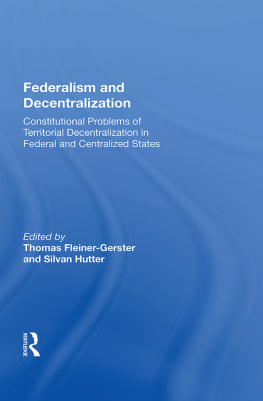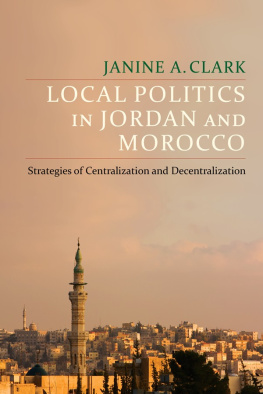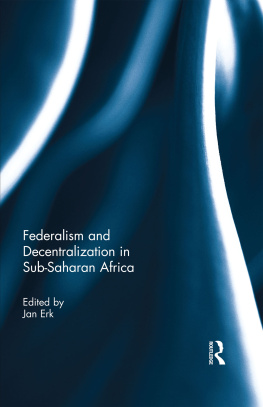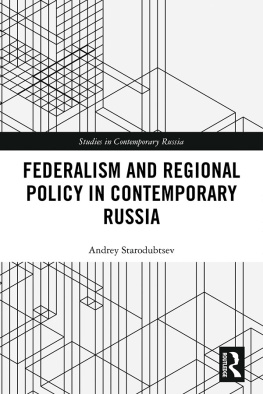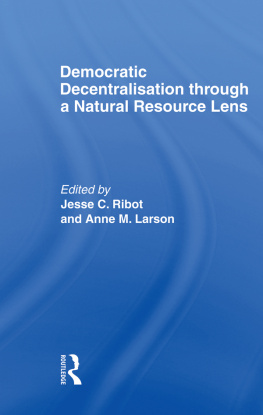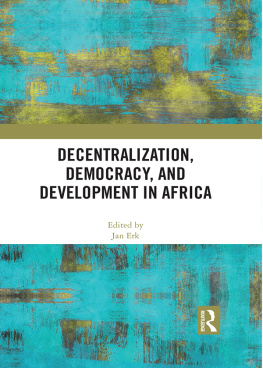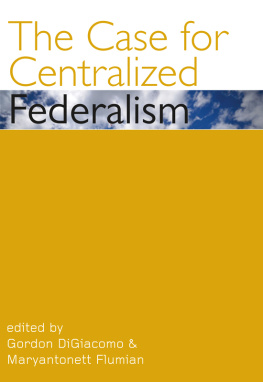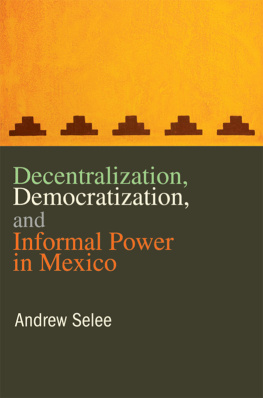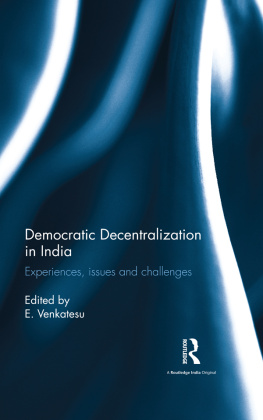First published 1987 by Westview Press
Published 2018 by Routledge
52 Vanderbilt Avenue, New York, NY 10017
2 Park Square, Milton Park, Abingdon, Oxon OX14 4RN
Routledge is an imprint of the Taylor & Francis Group, an informa business
Copyright 1987 by University Press Fribourg Switzerland
All rights reserved. No part of this book may be reprinted or reproduced or utilised in any form or by any electronic, mechanical, or other means, now known or hereafter invented, including photocopying and recording, or in any information storage or retrieval system, without permission in writing from the publishers.
Notice:
Product or corporate names may be trademarks or registered trademarks, and are used only for identification and explanation without intent to infringe.
ISBN 13: 978-0-367-00705-8 (hbk)
P.W.C. A KKERMANS , Professor, Erasmus University Rotterdam, The Netherlands
Abdelfattah A MOR , Professeur, Universit de Tunis, Tunisie
Fletcher N. B ALDWIN jr., Professor, University of Florida, United States of America
Lidija B ASTA , Research Fellow, Institute of Comparative Law, Yougoslavia
Yadh B EN A CHOUR , Professeur, Universit de Tunis, Tunisie
Alfons B ENEDIKTER , Landeshauptmann-Stellvertreter, South Tyrol, Italy
Michael B OTHE , Professor, University of Frankfurt, Federal Republic of Germany
John W. B RIDGE , Professor, University of Exeter, United Kingdom
C. Lloyd B ROWN-JOHN , Professor, University of Windsor, Canada
Dheba Chele D HEDONGA , Chef de Travaux, Universit de Kinshasa, Zare
Louis F AVOREU , Professeur, Universit dAix-Marseille, France
Thomas F LEINER -G ERSTER , Professeur, Universit de Fribourg, Suisse
David F OULKES , Professor, University of Cardiff, United Kingdom
Louis H ENKIN , Professor, Columbia University, United States of America
Yochi H IGUCHI , Professeur, Universit de Tokyo, Japon
Suna K ILI , Professor, Bogazici University, Instanbul, Turkey
Ivan K RISTAN , Professor, University of Liubljana, Yougoslavia
Franois L UCHAIRE , Professeur, Universit de Paris I, France
Antoine N. M ESSARRA , Professeur, Universit St. Joseph, Liban
Paul J. M ISHKIN , Professor, University of California, Berkeley, United States of America
Tore M ODEEN , Professor, Faculty of Law, Helsinki, Finland
Pavle N IKOLI , Professeur, Universit de Belgrade, Yougoslavie
Theo O EHLINGER , Professeur, Universit de Vienne, Autriche
Abiola O JO , Professor, University of Lagos, Nigeria
Loc P HILIP , Professeur, Universit dAix-Marseille, France
Peter S ALADIN , Professeur, Universit de Berne, Suisse
Cheryl S AUNDERS , Senior Lecturer, Melbourne University, Australia
Christian S TARCK , Professor, University of Gttingen, Federal Republic of Germany
Witold Z AKRZEWSKI , Professeur, Universit Jagellonne de Cracovie, Pologne
Sylwester Z AWADZKI , Professor, Minister of Justice, University of Warsaw, Poland
Youyu Z HANG , Professeur, Prsident de la Socit des Juristes de Chine, Chine
During the last century and at the beginning of this one the main issue for most European States was national unification. Since about 1950, national unity has been a vital problem particularly for former colonial States. It is not surprising, therefore, that all constitutionalists have been ardently defending, and today still defend, the concept of the one indivisible State sovereignty.
Today, the position of the State as supreme sovereign authority is being increasingly questioned. In many countries, the growing need for greater regional independence is reducing the powers of the central government which were previously unlimited. Furthermore, the integration of States into regional and supranational communities is weakening sovereignty towards the exterior. The renewed influence of religions and ideologies spreading beyond State boundaries, on the one hand, and the formation of multinational companies on the other, is threatening the independence of both political parties and the economy. Finally, the increasing awareness of the need to create a basis of confidence to ensure our survival has brought about a softening of the once rigid and inflexible concept of sovereignty.
But even regarding internal affairs, the traditional notion of sovereignty is being threatened. Linguistic, historical, religious and ideological minorities are questioning the authority of the State.
The modern Welfare State has centralizing tendencies and taxes the various regions heavily and often indiscriminately. The inhabitants of border regions, in particular, are increasingly refusing to pay these taxes to the central government, if the latter spends the money on the infrastructure of the central region only whilst disregarding the needs of the peripheral regions. The neglected areas, therefore, claim a right of co-determination and decentralization in administrative and economic matters.
States comprising various ethnic minority groups must face the fact that the patriotic feelings of these groups are rooted in their own tradition and that they do not consider the central State to be their fatherland. Indeed, these groups are claiming autonomy and independence regarding the education of their children in order to safeguard the survival of their culture in modern industrial society. The pressure they exert with a view to obtaining self-determination is steadily increasing. As the majority of States can no longer deal with these particular questions alone, problems concerning minority groups have become the source of important international conflicts. Thus, from the League of Nations until the Camp David Agreement, public international law has been attempting to clarify the notions of autonomy and self-determination.

